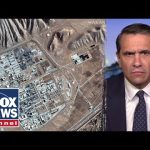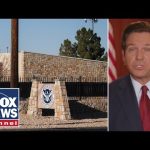In recent discussions surrounding the delicate issue of Iran’s nuclear capabilities, a former congressman and intelligence advisor from Ohio provided insights that shed light on America’s strategic approach. The conversation revolves around a mission aimed at ensuring Iran cannot develop nuclear weapons, which has been a longstanding concern for the United States and its allies, particularly Israel.
Drawing upon years of military experience and intelligence assessments, the former congressman pointed out the effectiveness of the recent operations involving airstrikes. He described these actions as a well-timed “one-two punch” to counter 46 years of Iranian hostile activities. The mission’s clear objective is to prevent Iran from enriching uranium to levels that would allow it to produce nuclear weapons, specifically 90% enriched uranium, which is needed for bomb-making. With the capability of determining the extent of damage through advanced surveillance, the former congressman expressed confidence in the conclusions drawn from the operations.
However, the situation is complex. The International Atomic Energy Agency (IAEA), which is responsible for verifying nuclear activities, has yet to gain access to Iran to conduct a thorough assessment. The Iranian parliament has made a move to bar IAEA inspectors, complicating the verification process and raising questions about what Iran may be hiding. The congressman suggested that psychological impacts from the attacks could also play a significant role in shaping Iran’s future decisions, particularly regarding negotiations.
The America’s mission to ensure “no nukes” in Iran has not only military implications, but it also extends to diplomatic strategies. Iran’s historical belligerence and aggressive rhetoric pose challenges in dialogues. There is skepticism, especially given the past efforts that fell short of thwarting Iran’s nuclear ambitions. As previous administrations have grappled with Iran’s nuclear progress, the current approach highlights the stark contrast in tactics. While some critics argue that military action alone may not suffice in halting Iran’s advancements, others assert that the recent military actions have set back Iran’s capabilities significantly.
As the dust settles, observers are left to ponder: Will these operations lead to productive discussions, or will they be met with defiance from Iran? The former congressman pointed out that intelligence gathering post-attack will be crucial in determining Iran’s next steps. Will they negotiate, or will they persist in their traditional warfare tactics? The coming days and weeks will reveal whether any semblance of diplomacy can arise from this perilous situation or if tensions will escalate further. The world watches closely, for the stakes have never been higher in the quest for a peaceful resolution.




